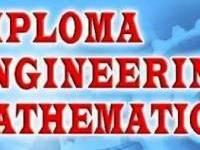
Search from over 6,50,000+ Tutors, Trainers and Training Institutes
What do you want to learn?
No Matching Category Found x
Please select a Categoryx
Where do you need it?
Please select a Locationx
Popular Courses in Hyderabad

B.Tech Maths Tuition -- M-1, M-2, M-3, M-4 and P&S
By SubbaRao DBTech TuitionChanda Nagar, Hyderabad
B.Tech Mathematics Maths – 1, Maths – 2, Maths – 3, Probability & Statistics, Maths – 4 This class started for B.TECH... Read More

Amazon Web Services
By Vidya SagarAmazon Web ServicesDilsukhnagar Kamala Nagar, Hyderabad
We introduce ourselves as Complete Open Source Solutions (COSS), as one of the premiere AWS (Amazon Web Service) training centers in India. We have immense... Read More

Diploma MATHS Tuition ( M-1, M-2, M-3 )
By SubbaRao DEngineering Diploma TuitionChanda Nagar, Hyderabad
This class started for DIPLOMA backlogs students. For this class training is given by experienced faculty. In this class all concepts will be covered from... Read More

Graphic Designing
By VeeraGraphic DesigningKondapur, Hyderabad
Course Details: Adobe Photoshop, CorelDraw, InDesign, Illustrator All Print & Web media designing (banners, boards, greetings, magazines, ads, cover... Read More
How UrbanPro works

Post your requirement

Get customized responses

Compare & hire smartly
Find best Tutors, Trainers & Training Institutes for your requirement on India's Favourite Learning Destination.
Post your Requirement
Show previous answers 
Rajat Patel replied | 4 hrs ago
Tutor Partnership is a smart collaboration where a platform helps you find students, and you earn by teaching them.
For example, platforms like UrbanPro offer a Tutor Partner Program where tutors join, create a profile, and connect with students looking for classes.
✅ Is it legit?
Yes — if it’s from a trusted and well-known platform. Many tutors successfully use such partnerships to get students and earn money.
Show previous answers 

Anu Benny replied | 3 days ago
yes there are some tutors how go to students home and teach them

Ramesh replied | 23 hrs ago
Some do but generally these are over video calls

Show previous answers 

Anjali replied | 2 days ago
Ideally before and after four hours of every meal. But there are some specific Pranayama that one can practice anytime based on one's energy level.

Ishan Khatri replied | 1 day ago
One should begin Prāṇāyāma after mastering a steady and comfortable āsana, when the body is stable and the breath is calm.
Thousands of experts Tutors, Trainers & other Professionals are available to answer your questions
Ask a ProHow it works for Tutors & Training Institutes
![]()
Create Free Profile
Upload Photos, Portfolio, Certificates, Add Description, Qualification, Achievements to Help students Discover You
![]()
Teach Students Online / Offline
Use world class tools for FREE to teach Students across India and globally. Get Training support and Marketing support to get steady stream of Students to teach.
![]()
Earn a steady income
Earn handsomely based on the number of Students you teach. Top Tutor Partners earn ₹ 40,000 to ₹ 1,50,000 per month.
Music in Hyderabad
Exam Prep in Hyderabad
Health and Fitness in Hyderabad
IT Courses in Hyderabad
Language in Hyderabad
IT Courses
Tuitions
IT Courses
Tuitions
Languages
Requirements by Customers
Post requirement and connect with the tutors in your locality

Find best tutors, trainers & institutes near you on UrbanPro
Post your learning requirement
Gaurav Kumar replied | 1 day ago
A Tutor Partnership is a collaboration model where two or more individuals or organizations work together to provide educational services (tuition, coaching, mentoring, skill training).